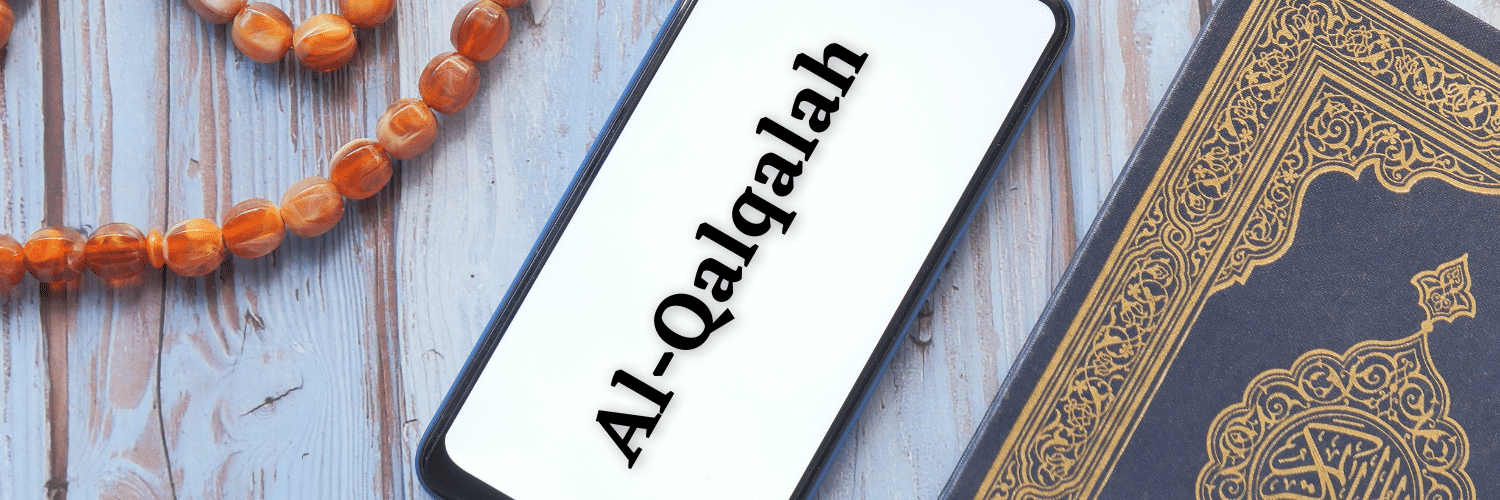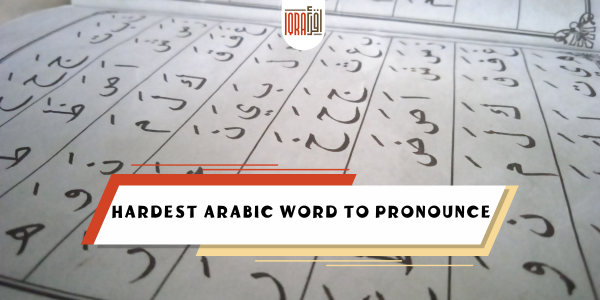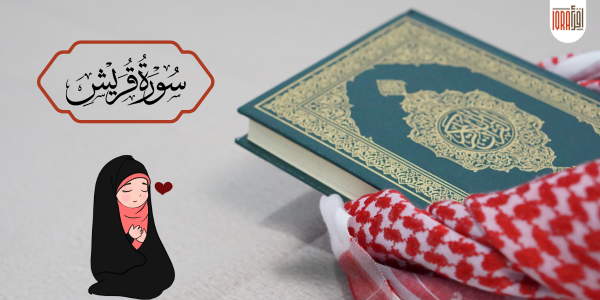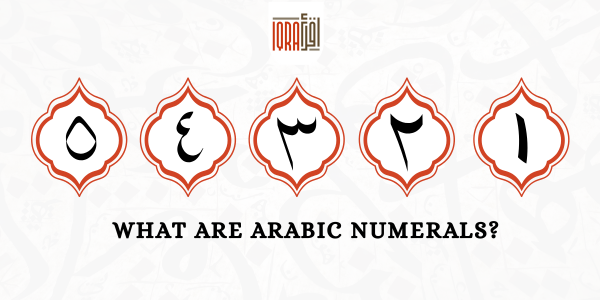This-is-is post-ost-ost will-ill-ill be-be-be about-out-out Qalqalah-ah-ah…
But what is Qalqalah? First, be rest assured I won’t type echos for the rest of the post. Because it’d get a tad annoying for both author and reader. The word itself sounds repetitive and as interesting as it’s Tajweed rule.
![]()
Qalqalah: sound articulation and echo. In essence the word means shaking/disturbance. In Tajweed, it means to disturb the letter that has sukoon, i.e. that is saakin, but without any corresponding movement of the mouth and jaw that is associated with voweled letters (i.e. letters that have fat-ha, dammah, or kasra). Qalqalah “shakes” to “echo” the letter without taking up the preceding or succeeding letter’s diacritic.
![]()
To explain:
There are five letters in the Arabic alphabet that apply to Qalqalah. These five letters are:
ق ط ب ج د
daal jeem baa tah qaaf
To easily remember these letters, remember the phrase they make up, (قطب جد).
Simply, Qalqalah is echoing the above five letters when they are in state of sukoon, i.e.
قْ طْ بْ جْ دْ
![]()
To feel the importance of Qalqalah, try saying (أط), how about (أق) you’ll find one of two things happen. Either the back end of your tongue gets stuck and it’s difficult to loosen it and breathe, or your tongue will naturally slip and the back of your mouth is open again. It is this “slipping” that Qalqalah is based on. Disturbing the letter without moving your jaw or mouth. Try it for the rest of the letters, (أد) and (أج) and (أب). Imagine trying to say the word,
أبْناء
If there was no “slipping”/”shaking”/”echoing” of the letter baa (بْ) then how hard would it be to say the noon (ن) straight away with your lips still pressed together? Doing Qalqalah will cause your lips to “slip” a bit i.e. open up a tiny bit without adding a diacritic to the baa, to make it easy to pronounce the noon. On a final note, as one Imam puts it,
![]()
The qalqalah is necessary for these letters because they have the attributes of jahr (stoppage of the flow of breath) and shiddah (stoppage of the flow of sound), so without qalqalah, there would be no sound!
But as the blog has not covered attributes of letters yet, this might just sound all too surreal for some.
![]()
There are three types of Qalqalah:
Qalqalah Kubra (Strong Echo): occurs at the end of an ayah.
Qalqalah Wusta (Medium Echo): occurs at the end of a word in the middle of an ayah.
Qalqalah Sughra (Subtle Echo): occurs in the middle of a word whether at the beginning, middle or end of an ayah.
![]()
Examples of Qalqalah:
Kubra (strong):
الْفَلَقِ كَسَبَ
_______Kasab __________________ Al-falaq
الْمَعَارِجِ مَسَدٍ مُحِيطٌ
________Muheet _________________Masad _________________ Al-ma’aarij
You may notice the the last letters that require Qalqalah don’t actually have sukoon drawn above them! Diacritics have been put in place for readers who want to continue reading without a pause through to the next ayah. However, stopping at the end of every ayah is preferred and so in these such circumstances you must do a strong Qalqalah.
![]()
Wusta (middle):
نَجِدْ لَهُ قَدْ أَفْلَحَ
qad aflaha ___________najid lahu
Here the sukoon is clearly marked on the Qalqalah letters.
V.I.Note: if you run out of breath and wish to stop in the middle of an ayah, and you stop at a word that has a qalqalah letter on the end, you must, must, must read it as a qalqalah kubra! For example, if I wanted to stop at the word qad in the above example, the daal must be echoed strongly. Then if I were to continue reading by repeating the word and continuing, I do a qalqalah wusta.
![]()
Here’s the example again:
[reciting] … [out of breath] … [stopping at word qad] … [doing a strong echo on the daal] … [takes breath] … [wants to continue] …
[start at the word qad and reads: qad aflaha, doing a qalqalah wusta on the daal].
Simple!
![]()
Sughra (subtle):
أَبْنَاءَكُمْ تَطْهِيرًا خَلَقْنَا
khalaqna _ _______ _tat-heeran ______________ abnaa’akum__
Similarly the sukoon is clearly marked on the Qalqalah letters.
![]()
Resources Link:
-Tajweed Rule [Tajweed Basics: Foundations and More: page 9]
–Sukoon [Gatway To Arabic: page 48]
-Makhaarij Al-Huroof [dot points 5, 7, 12, 15]
I suggest visiting Quranic Audio to listen to Qalqalah.
Select your favourite reciter and listen to Surat Al-Falaq [113]/Al-Masad [111]/Al-Qiyaamah [75] for Qalqalah kubra.
Qalqalah wusta and sughra occur throughout the entire Quran. I don’t think there is any particular one you really should listen to. Surat Al-Qalam [68] has a fair few Qalqalah sughra. I also suggest Surat Al-Muzzamil [73] for a combination of wusta and sughra.





0 Comments
Oops comments are disabled